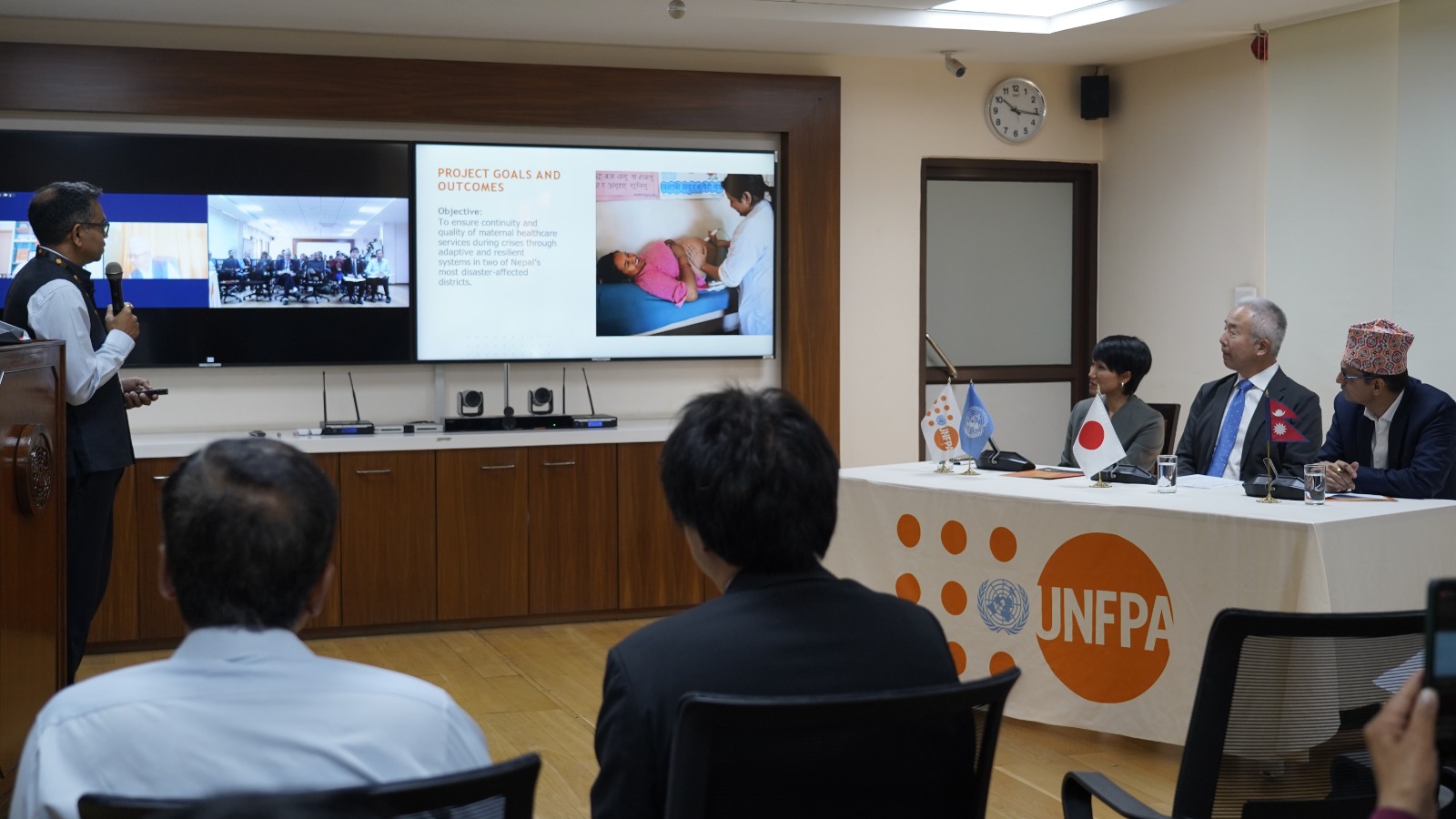Brijesh Kumar Gupta has just been elected general secretary of Terai-Madhesh Loktantrik Party. Onlinekhabar recently talked to him about the Madhesh movement, the Prime Minister’s impending visit to India, and the government’s commitment to amending the Constitution to address the demands of Madheshi parties.
Gupta says UDMF (Madheshi Morcha) is the major force behind the movement calling for amendment of the new constitution, and Mahanta Thakur is the internationally-accepted leader of the Morcha. Asked why Updendra Yadav of Forum Nepal has been projected as leader of the Federal Alliance (a grouping of pro-identity forces, including the Morcha), Gupta says Yadav has not been recognised domestically, as well as internationally.
We have seen that differences of opinion surface in the Morcha whenever the government puts forward a proposal. Is it the same case this time also?
The Morcha may also have people who do not want the problem to be resolved. There are those inside the Morcha who want to use the protests to make their presence felt, and become leaders of Madhesh. But they should not forget that the Morcha’s main objective is to make the government address the demands of Madhesh. I am confident that this time around, a solution is within reach. We know that we cannot continue to protest forever. Such a move would not benefit the country.
When the Morcha decided to call off the blockade, we saw that Upendra Yadav, Mahanta Thakur and Rajendra Mahato were never on the same page.
I don’t see that happening this time around.
So, who is the principal leader of Madhesh? Updendra or Mahanta?
The answer is pretty obvious. After the second Constituent Assembly, Upendraji’s party had fewer seats than ours. Upendraji later joined forces with Ashok Rai, and the new party they formed had more seat than ours. But that should not be a basis to decide who is the principal leader of Madhesh. The leader has to be someone who has been recognised both domestically and internationally. Mahanta Thakur is the only leader who meets this criteria. However, Mahanta ji himself has never claimed to be the tallest leader of Madhesh, nor have we.
Is the dynamic within the Morcha being affected by the alliance members’ electoral strategies?
We are not as worried about the elections, as we are about the demands of Madheshi people. We know that if the Morcha stays together during elections, Madheshi parties will emerge as the most powerful force in Madhesh. We know that if we do not unite, the Nepali Congress or the UML will win again.
So is the UML the Morcha’s main enemy, at least for now?
I don’t know in what context you are asking this question. If you are asking in the context of elections, my response is that the UML is not our competitor in ‘core Madhesh’. The UML is strong near the highways. But we are not pitting ourselves against the UML there.
If you are asking this in the context of our demands, the UML appears to be our main enemy. However, if you are to go back to the time when the constitution was promulgated, the Nepali Congress and the Maoists were our main enemies. Our demands could have been addressed, if they had wanted to do so.
So you think that the Nepali Congress and the Maoists have shown willingness to address your demands just to keep the UML out of power?
Personally, I would say that I am a bit sceptical about the Maoists. We know that the UML and Nepali Congress are electoral opponents. The Maoists and the UML are ideological opponents.
There are some questions that remain unanswered. Did the Nepali Congress and the Maoists come together to ring-out the UML? Why did the Nepali Congress and the Maoists did not support our demands? They could have incorporated our demands to make the Constitution more acceptable.
“That Prime Minister Pushpa Kamal Dahal sent a letter to his Indian counterpart Modi (talking about the proposed amendment to the Constitution) reminds us of the four-point non-paper KP Oli submitted to Sushma Swaraj.”
You have said that the Prime Minister has told you your demands would be addressed before he leaves for India. Does that mean your demands would be ‘addressed’ when India is happy?
We feel a bit awkward about this. That Prime Minister Pushpa Kamal Dahal sent a letter to his Indian counterpart Modi (talking about the proposed amendment to the Constitution) reminds us of the four-point non-paper KP Oli submitted to Sushma Swaraj. Why did Prachanda send the letter to India? Why did he not give the letter to Mahanta ji?
Is it that the government thinks that when India is convinced, the Morcha will also be convinced?
I want to make it clear that the Morcha is not going to fall for it. Some political parties may fall for it, but we will not. The young Madheshi protesters will not tolerate it. This is our internal matter, we should settle it ourselves. We are ready to talk about our issues, we can reach a deal when everyone is ready to compromise.
“It is wrong to go to India to seek solution to Nepal’s problems”
India will have to accept any settlement we reach. But it is wrong to go to India to seek solution to Nepal’s problems.
So tell us what do you think the government needs to do address the demands of Madhesh?
The most pressing of all demands is related to the delineation of provincial boundaries. The boundaries need to be altered; how we are to go about it is something I do not want to speak about. There shall be a give and take.
The second issue is that of the composition of the Upper House. We want representation based on population. We also are not in favour of allowing naturalised citizens to become President or Prime Minister. All the government needs to do is do away some discriminatory clauses in the citizenship laws.























